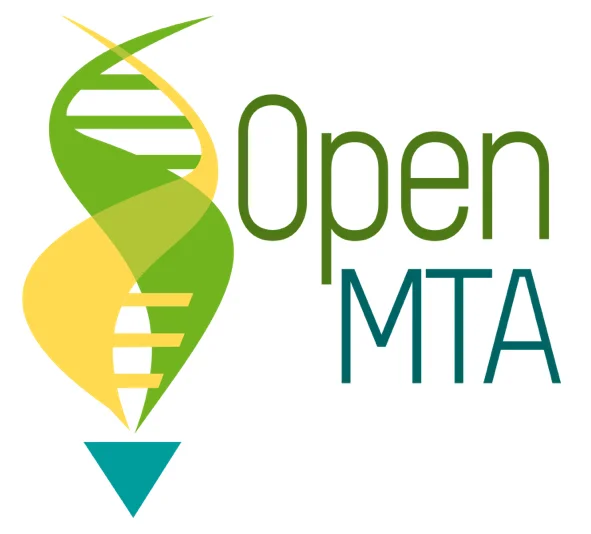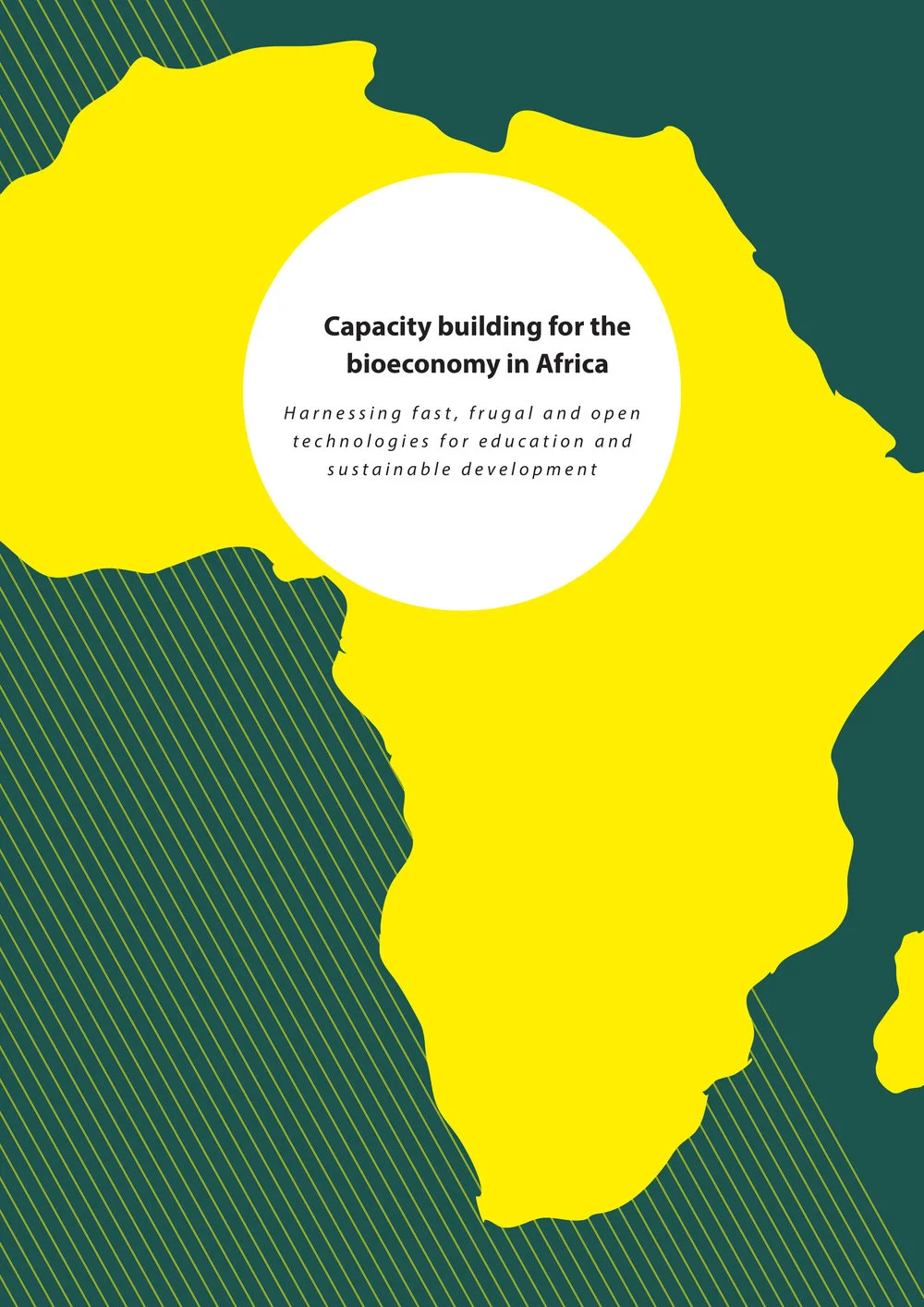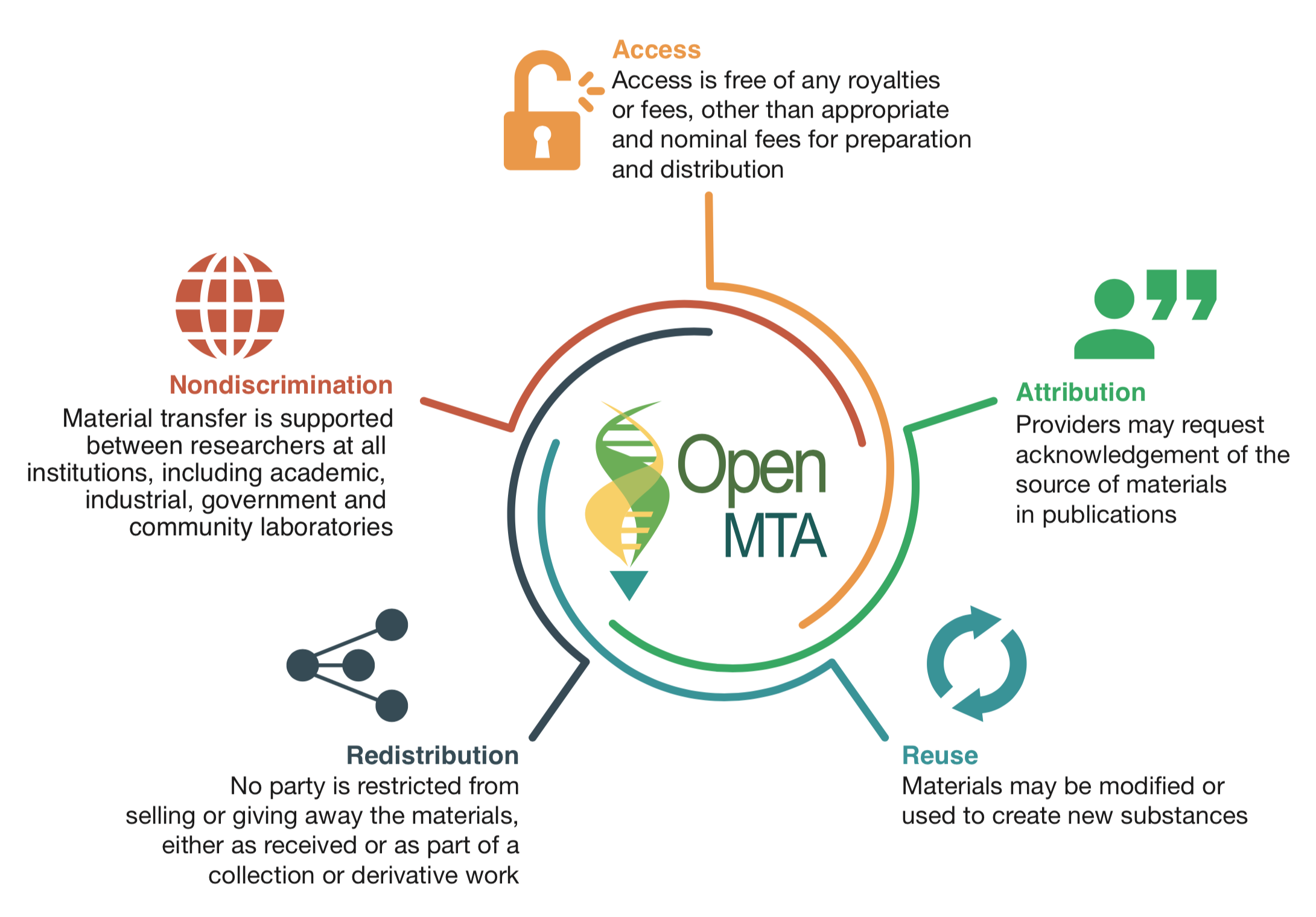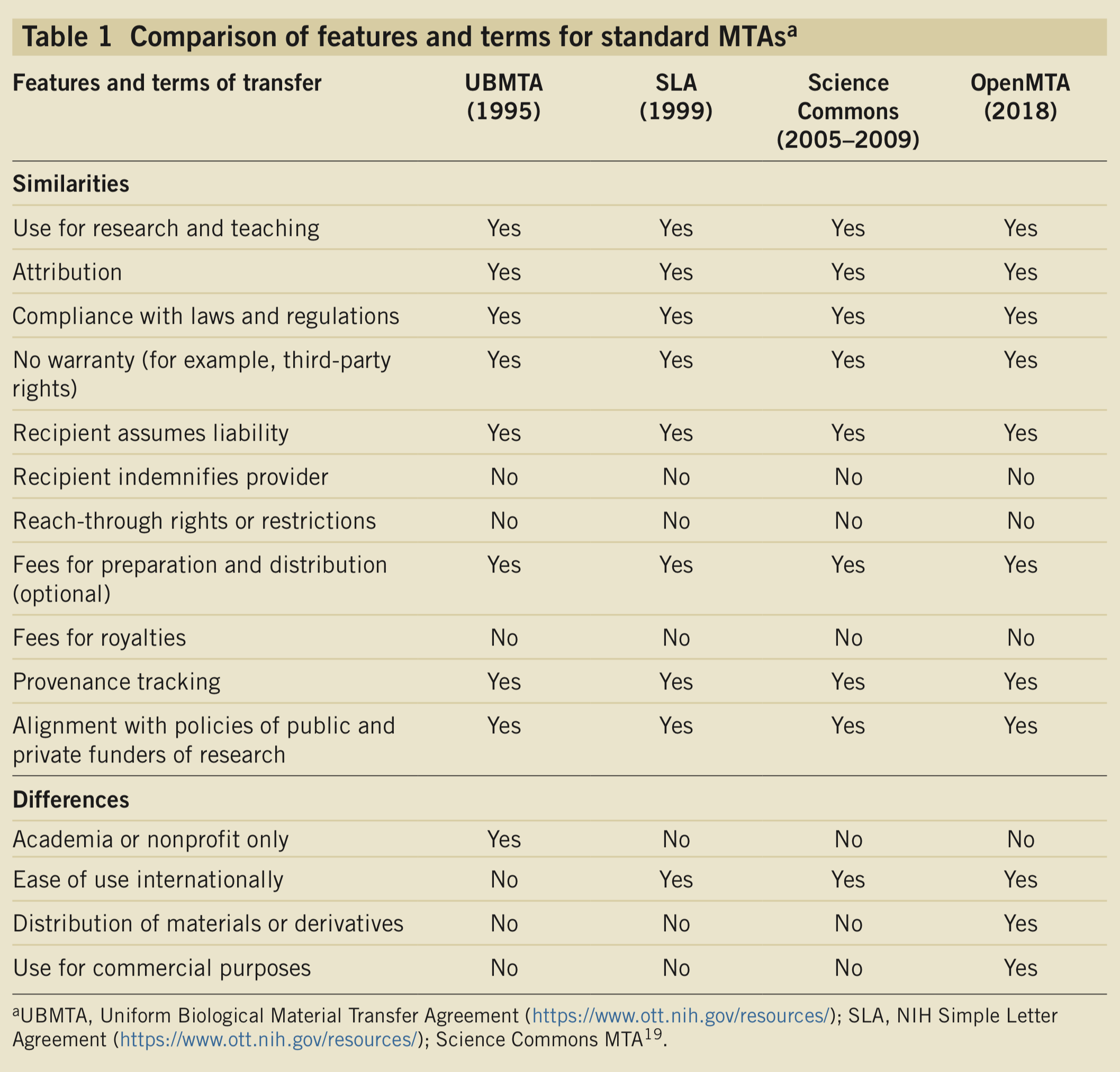OpenMTA: open materials transfer agreement
The Open Material Transfer Agreement (OpenMTA) is a simple, standardized legal tool that enables individuals and organizations to share their materials on an open basis.
Developed as a collaborative effort between the BioBricks Foundation and the OpenPlant Initiative, with input from researchers, technology transfer professionals, social scientists, lawyers, and other stakeholders from across the globe, the OpenMTA reflects the values of open communities and the practical realities of technology transfer.
What is the OpenMTA?
The OpenMTA is a Material Transfer Agreement (MTA) - a new easy-to-use legal tool that enables open exchange of biological materials, designed to support openness, sharing and innovation in global biotechnology.
Material Transfer Agreements (MTAs) provide the legal frameworks within which research organisations define terms and conditions for sharing their materials - everything from DNA molecules to plant seeds to patient samples. Use of the OpenMTA allows redistribution and commercial use of materials, while respecting the rights of creators and promoting safe practices. The new standardised framework also eases the administrative burden for technology transfer offices, negating the need to negotiate unique terms for individual transfers of widely-used materials.
Commentary
The OpenMTA launches with a commentary published in the journal Nature Biotechnology in October 2018. It provides a new way to exchange materials commonly used in biological research and engineering, complementing existing, more restrictive arrangements. The OpenMTA also promotes access for researchers and individuals working in less privileged institutions and world regions.
Download: OpenMTA Commentary. “Opening options for material transfer”. Linda Kahl, Jennifer Molloy, Nicola Patron, Colette Matthewman, Jim Haseloff, David Grewal, Richard Johnson & Drew Endy. Nature Biotechnology 36:923–927 (2018). https://doi.org/10.1038/nbt.4263
Sign up
OpenPlant and the BioBricks Foundation have collaborated to frame and implement the OpenMTA, and the agreement is in the process of being rolled out in a number of international institutions. More details of the OpenMTA can be found on the BioBricks Foundation site, along with a list of frequently asked questions and draft agreement. (https://biobricks.org/mta)
Simple introduction to the Open Material Transfer Agreement (OpenMTA)
Reports
OpenPlant organised a series of workshops in 2015-2017 to explore the need for new more open ways of working in biotechnology, and the potential benefits for innovation and global access. These resulted in reports:
Download "Towards an Open Material Transfer Agreement" Report (3.3MB, 24 pages)
Download "Capacity Building for the Bioeconomy in Africa" Report 2017 (3.9 MB, 26 pages)
Guidelines for design of the OpenMTA
The agreement was developed through a collaboration, led by the San Francisco-based BioBricks Foundation and the OpenPlant Synthetic Biology Research Centre, a joint initiative between the University of Cambridge, John Innes Centre and Earlham Institute. The collaboration brought together an international working group of researchers, technology transfer professionals, social scientists, and legal experts to inform the creation of a framework that could improve sharing of biomaterials. The team identified five design goals on which to base the OpenMTA: (i) access, (ii) attribution, (iii) reuse, (iv) redistribution, and (v) non-discrimination.Additional design goals include safety and sharing in an international context.
ACCESS. Materials available under the OpenMTA are free of any royalty or fees, other than appropriate and nominal fees for preparation and distribution.
ATTRIBUTION. Providers may request attribution and reporting for materials distributed under the OpenMTA.
REUSE. Materials available under the OpenMTA may be modified or used to create new substances.
REDISTRIBUTION. The OpenMTA does not restrict any party from selling or giving away the materials, either as received or as part of a collection or derivative work.
NONDISCRIMINATION. The OpenMTA supports the transfer of material between researchers at all types of institutions, including those at academic, industry, government, and community laboratories.
Case studies
Comments:
“The OpenMTA provides a new pathway for open exchange of DNA components - the basic building blocks for new engineering approaches in biology. It is a necessary step towards building a commons that will underpin and democratise access to future biotechnological advances and sustainable industries.”
“We encourage organisations worldwide to sign the OpenMTA Master Agreement and start using it. In five years’ time my ideal is for the OpenMTA to be the default option for the transfer of research materials within and between academic research institutions and companies.
Instead of automatically placing restrictions on materials, people will ask whether restrictions on use and redistribution are appropriate and instead use this tool to promote sharing and innovation in a way that does not compromise safety.”
“Addgene is excited to see this new option becoming available to increase reagent sharing and scientific collaboration.”. “This kind of open exchange drives innovation and accelerates research.”
“We hope to see the OpenMTA enable an international flow of non-proprietary tools between academic, government, NGO and industry researchers, to be used, reused and expanded upon to develop new tools and innovations.”
“The OpenMTA will be particularly useful in Latin America, allowing researchers to redistribute materials imported from overseas sources, reducing shipping costs and waiting times for future local users. We are implementing it in an international project that requires sharing genetic tools among labs in four different continents. We believe, the OpenMTA will support projects based on community-sourced resources and distributed repositories that lead to more fluid collaborations.”
“The OpenMTA provides a permissive foundation supporting many communities and interests. It is a critical step forward in enabling all people to benefit from next generation biotechnologies. To accelerate widespread adoption we encourage universities, corporations, funders, and charities to consider making the OpenMTA their default MTA. ”















